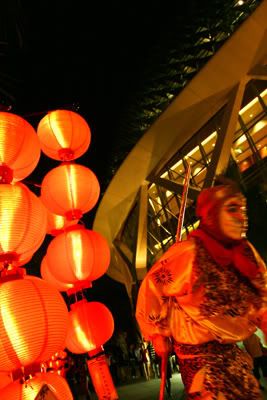
An almost lost tradition that the Chinese around the world celebrate today. Also known as called Mid-Autumn Festival, Chinese shared the comment time together with their love ones.
The History
The origin of Lantern Festival dates back in the early Han Dynasty during Emperor Wu of Han's reign. Legend has it that Emperor Wu of Han had a dream of his palace being burned downed and felt that the dream was a bad omen, so he asked his subjects in his imperial court for advice the next day. Some of the subjects took the opportunity to perform a good deed for the thousands of concubines and female servants in the imperial palace who were prohibited from going home by telling the emperor that the dream was indeed a bad omen and the palace would be burnt down to the ground by deities. In order to avoid impending disaster, each female resident in the imperial palace must carry a lantern and go home, thus fooling the deities in believing there was already a fire in palace and people were fleeing, and every one would return to the palace afterwards. The emperor agreed and of course, there was no fire at the palace and the emperor credited the supposedly successful aversion of the disastrous fire with what was done, and hence he decreed the event to become a regular festival. As a result, the festival eventually became a family reunion day when it merged with other Chinese traditions of various regions in China over time, such as eating tangyuan (Simplified Chinese: 汤圆; Traditional Chinese: 湯圓; pinyin: tāngyuán), a sweet glutinous rice dumpling served in a sugary soup, symbolizing family reunion.[1]
Traditionally, the Lantern Festival is also used to serve as a day for love and matchmaking, on which an unmarried girl was traditionally permitted to appear in public unescorted and thus be seen by eligible bachelors. It was one of the few nights in ancient times without a strict curfew. Young people were chaperoned in the streets in hopes of finding love. Matchmakers acted busily in hopes of pairing couples. The brightest lanterns were symbolic of good luck and hope. As time has progressed, however, the festival no longer has such implications nowadays.
Those who do not carry lanterns often enjoy watching informal lantern parades. In addition to eating tangyuan (Simplified Chinese: 汤圆; Traditional Chinese: 湯圓; pinyin: tāngyuán), other popular activities at this festival include and guessing lantern riddles (which became part of the festival since Tang Dynasty), often messages of good fortune, family reunion, abundant harvest, prosperity and love.
http://en.wikipedia.org/wiki/Lantern_Festival (Tuesday 11.10pm 2007)
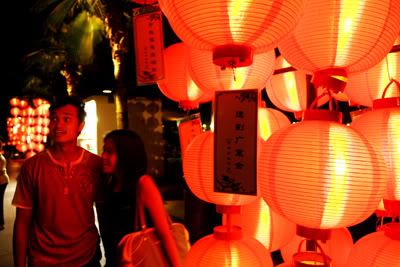
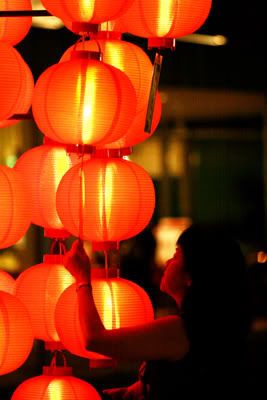
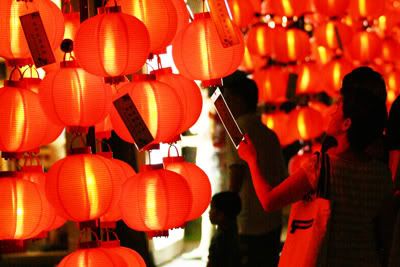
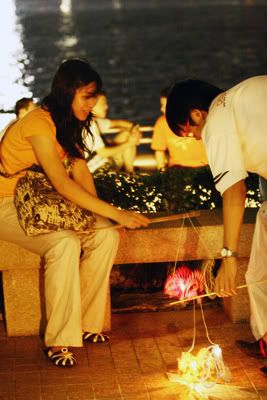
No comments:
Post a Comment